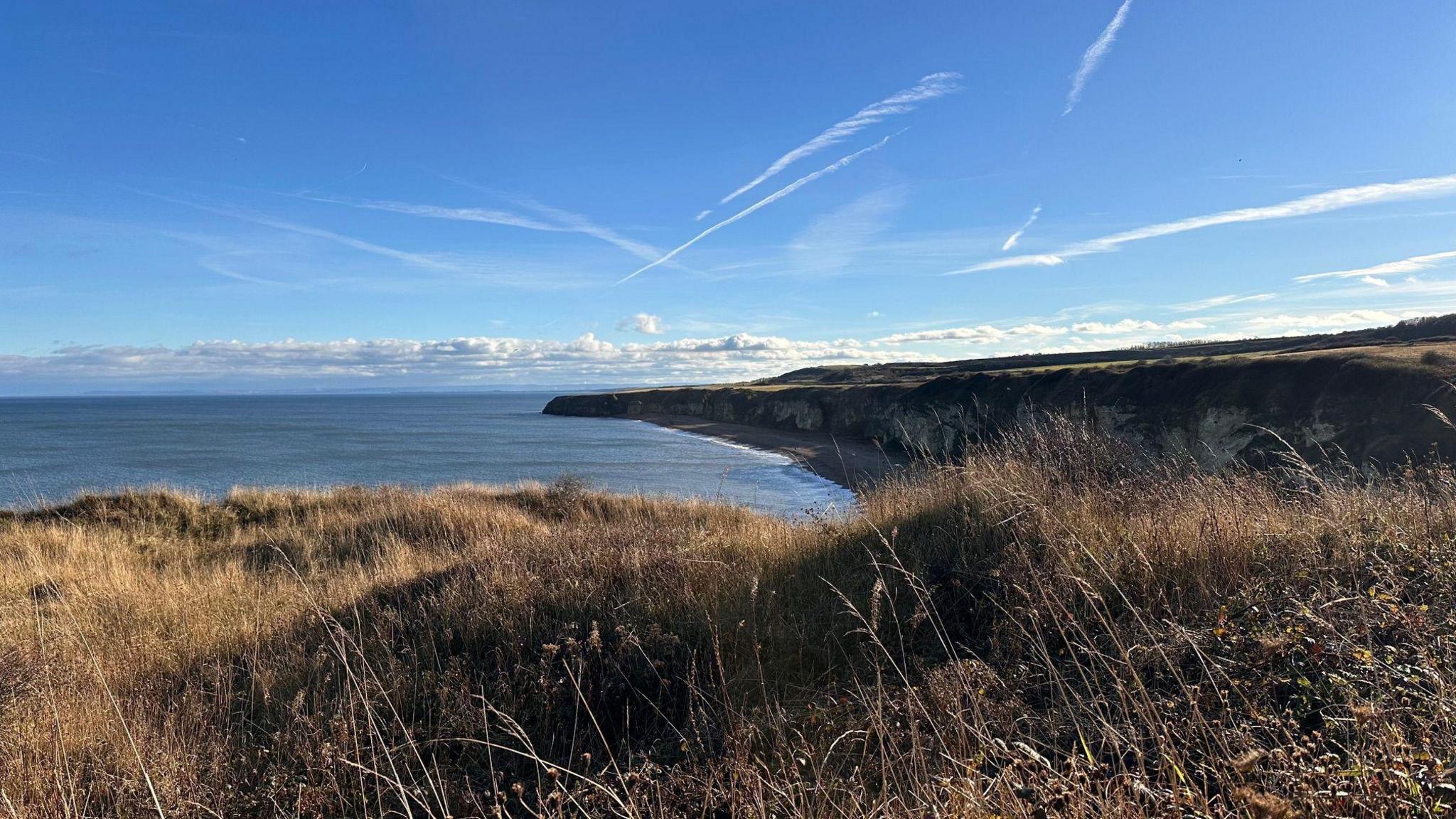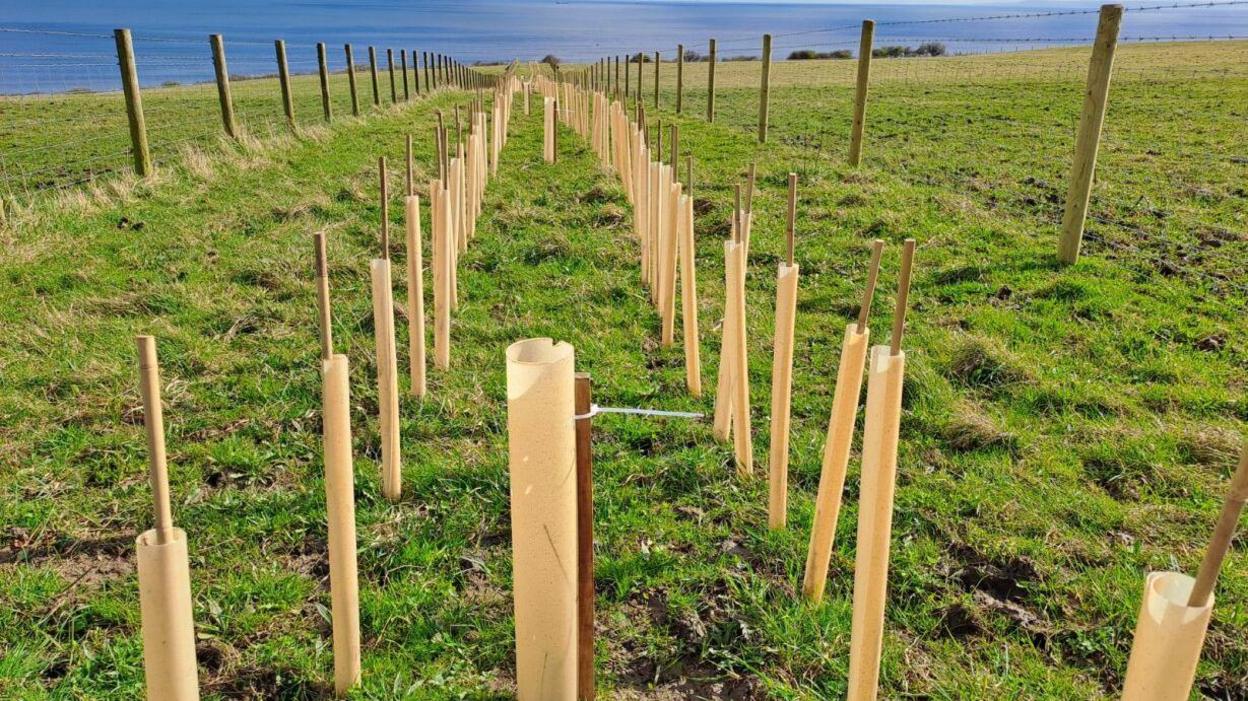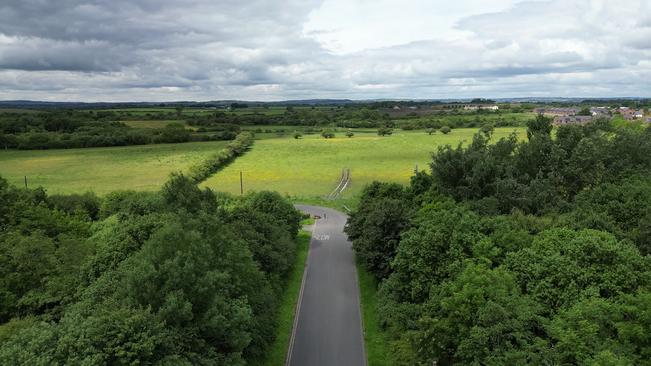'Rare' coastal habitat set for restoration

Noses Point is one of the areas included in the scheme
- Published
More than 200 hectares of "rare" coastal habitat are to be restored alongside efforts to create a wildlife corridor.
The Coastal Grasslands Reconnected Project will focus on an area in County Durham between Nose's Point, near Seaham, and Horden, described as "wildflower-rich".
Hedgerows, trees and scrub will be planted.
A partnership between Durham County Council, Durham Wildlife Trust and the National Trust, the scheme has been awarded £975,000 from the government's Species Survival Fund.
The money will be used to support the management of the habitats through fencing, installation of water sources, baling and surveys.
It will also fund a high-tide roost area for birds at Blackhall Rocks.
'Ecological resource'
Councillor Mark Wilkes, cabinet member for neighbourhoods and climate change, described the county's coastline as home "to the unique and very rare magnesian limestone grassland".
"This habitat is a rich and valuable ecological resource - home to diverse and rare flora and fauna," he said.
"Not only will this project help us to restore and protect the native and biodiverse habitats of our coastline, it also supports our work to tackle the county's ecological emergency and reverse the decline in important species and habitats."
The council hopes local communities, youth groups and schools will get involved and says there will be opportunities for volunteering in species monitoring and countryside management.
Follow BBC Sunderland on X, external, Facebook, external, Nextdoor and Instagram, external. Send your story ideas to northeastandcumbria@bbc.co.uk.
- Published23 March 2024

- Published30 June 2024
